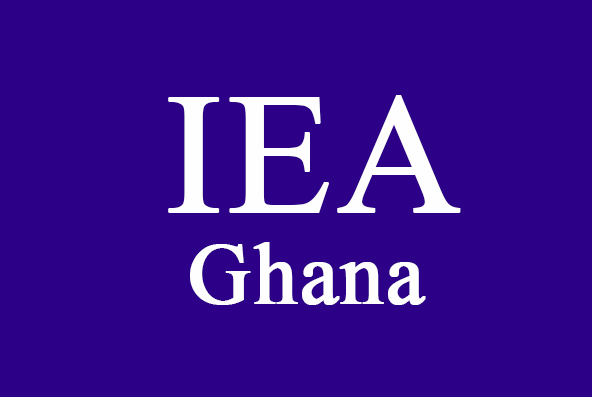
Audio By Carbonatix
The Institute of Economic Affairs (IEA) is urging present and future governments to take the country’s development destiny into their own hands because that’s the only way to end the perennial International Monetary Fund Programme.
According to the economic think tank, Ghana needs to build and entrench its own policy credibility without the IMF anchor over the long term.
“The long-term economic progress and survival of Ghana depends on internalising the country’s development by leveraging its abundant domestic resources to support home-grown, inclusive and cross-cutting policies anchored by financial discipline and a transformational strategy”, it stressed.
In this regard, the IEA said “it will be helpful to have a National Development Plan that spells out broad national priorities and strategies to achieve them. No longer should Party Manifestoes that are often characterised by experimentation and wayward policies that cater to individual and party interests rather than the national interest”
Learn from Covid-19, build buffers to prevent any economic calamity
The IEA also urged present and future governments to learn lessons from the Covid-19 pandemic and the Russia-Ukraine war since they have exposed Ghana’s existing vulnerabilities, culminating in the economic crisis that drove the nation back to the International Monetary Fund.
Most importantly, even beyond the IMF programme requirements, it wants the government to build strong economic and financial buffers, including a sizable fiscal space, a sinking fund to support debt repayments, among others.
The economic think tank said a contingency fund to cater for economic shocks and emergencies, and a robust financial sector must be established.
“The IMF programme, just like the previous 16, can only bring the country temporary relief in terms of macroeconomic and financial stability and a boost in market confidence and policy credibility. The programme, as expected, is geared toward achieving targets and fulfilling goals that the IMF has determined to be appropriate for dealing with Ghana’s economic crisis”.
“However, these targets and goals are not sufficiently ambitious as the programme does not seek to harness the country’s full potential. Like previous programmes, this one cannot be the game changer for Ghana; it cannot be the panacea for the country’s recurrent economic crises. Ghana requires quantum jumps in its development and not the small incremental changes embodied in IMF programmes”, It stressed.
Latest Stories
-
Securing children’s tomorrow today: Ghana launches revised ECCD policy
51 minutes -
Protestors picket Interior Ministry, demand crackdown on galamsey networks
56 minutes -
Labour Minister highlights Zoomlion’s role in gov’t’s 24-hour economy drive
57 minutes -
Interior Minister receives Gbenyiri Mediation report to resolve Lobi-Gonja conflict
2 hours -
GTA, UNESCO deepen ties to leverage culture and AI for tourism growth
2 hours -
ECG completes construction of 8 high-tension towers following pylon theft in 2024
2 hours -
Newsfile to discuss 2026 SONA and present reality this Saturday
2 hours -
Dr Hilla Limann Technical University records 17% admission surge
2 hours -
Meetings Africa 2026 closes on a high, Celebrating 20 years of purposeful African connections
2 hours -
Fuel prices to increase marginally from March 1, driven by crude price surge
3 hours -
Drum artiste Aduberks holds maiden concert in Ghana
3 hours -
UCC to honour Vice President with distinguished fellow award
3 hours -
Full text: Mahama’s State of the Nation Address
3 hours -
Accra Mayor halts Makola No. 2 rent increment pending negotiations with facility managers
3 hours -
SoulGroup Spirit Sound drops Ghana medley to honour gospel legends
4 hours

